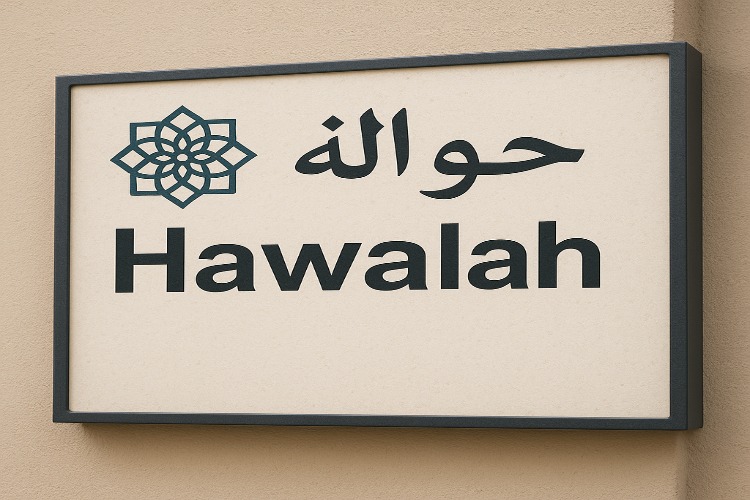Understanding Hawalah in Islamic Finance
1. Introduction: Meaning of Hawalah
Hawalah means "transfer" in Arabic and refers to an Islamic financial contract where a debt owed by one person (the transferor or muhil) is transferred to another person (the transferee or muhal alayh), who then becomes responsible for paying it to the creditor (the muhal). Once the transferee accepts this responsibility, the original debtor is released.
In simpler terms, imagine Person A owes Person B, but Person A asks Person C to pay Person B instead. Once C agrees, A no longer has to pay. This makes it easier to settle debts, especially when direct repayment is difficult.
2. Legitimacy from the Sharia Perspective
Hawalah's legitimacy is affirmed by authentic traditions of the Prophet Muhammad (peace be upon him), which emphasize the importance of timely debt repayment and the fairness of transferring debts to capable individuals. One such Hadith, narrated by Abu Huraira (may Allah be pleased with him), quotes the Prophet (peace be upon him) as saying: “Procrastination (delay) in paying debts by a wealthy person is injustice. So, if your debt is transferred from your Debtor to a rich Debtor, you should agree.” (Al Bukhari, Book #37, Hadith #487)
Islamic scholars agree that Hawalah is a legitimate practice that brings fairness and ease in financial matters. It is seen as a good deed when someone steps in to help another person settle their debt. Sharia promotes such contracts because they support social justice, kindness, and responsible financial behavior.
3. Principles of Hawalah
The operation of Hawalah is based on several foundational principles derived from classical Islamic jurisprudence:
- Tripartite Relationship: Hawalah inherently involves three parties – the transferor (original debtor), the transferee (new debtor), and the creditor. Each party plays a distinct and necessary role in executing the contract.
- Discharge of Liability: Once the transferee accepts responsibility, the transferor is completely absolved of the debt. This distinguishes Hawalah from contracts like kafalah (guarantee), where the original debtor remains liable.
- Binding and Irrevocable Contract: Upon mutual agreement, the Hawalah contract is binding and cannot be revoked unilaterally. The creditor is redirected to the transferee for repayment, and the transferor loses any right or obligation tied to the original debt.
- Offer and Acceptance: The formation of a Hawalah contract requires a clear offer and acceptance. These can be made verbally, in writing, or by recognized customary practice. Offer and acceptance must correspond and reflect mutual consent.
- Legal Capacity of Parties: All parties must be legally competent. This means they should be of sound mind, have reached the age of maturity, and be capable of understanding the consequences of their decisions. The contract is invalid if concluded by someone who is mentally incapacitated, underage, or under duress.
- Subject Matter Must Be a Debt: Hawalah applies strictly to debts. The debt must be existing, binding, and transferable. It cannot be conditional, uncertain, or based on prohibited (haram) transactions.
- Free Consent: Consent must be freely given without coercion or deception. Opinions vary among scholars on whether the consent of all three parties is required, but the practical approach favors mutual agreement to ensure smooth enforcement.
- Restricted and Unrestricted Forms: Hawalah can be restricted (where the transferee owes the transferor) or unrestricted (where the transferee has no prior obligation). Restricted forms are widely accepted across all schools, while the Hanafi school permits both.
These principles collectively ensure that Hawalah is not only legally valid under Sharia but also ethically sound, efficient, and beneficial for all involved parties.
4. Conditions for the Validity of Hawalah
The conditions for a valid Hawalah contract are detailed and structured to maintain legal soundness and fairness:
- Eligibility of Contracting Parties: Each party—the transferor, transferee, and creditor—must be legally capable. This includes being of sound mind, of legal age, and able to give consent freely. If any party is legally incompetent, such as a minor or someone of unsound mind, the contract is void or voidable. Jurists have agreed that legal capacity (ahliyyah) is essential to enter into a valid contract.
- Existence and Nature of the Debt: The transferred obligation must be a debt that already exists and is binding on the transferor. The debt must be clearly defined and not speculative. It cannot involve non-fungible goods or unlawful sources. For example, if a debt is linked to an incomplete sale, it cannot be transferred through Hawalah.
- Consent and Acceptance: Consent of the parties plays a central role in the contract’s validity. The Hanafis require consent from the creditor and the transferee, while the Malikis and Shafi’is require it from the transferor and creditor. The Hanbalis, on the other hand, only emphasize the transferor’s consent. Offer and acceptance must occur in the same contractual session, as delayed acceptance can render the contract ineffective.
- Equivalence and Specificity: In a restricted Hawalah, the debt being transferred should match the debt owed by the transferee to the transferor in type and amount. This ensures no party gains or loses unfairly from the transaction. Debts involving foodstuffs under salam contracts cannot be transferred due to Sharia restrictions.
- Binding Nature of the Debt: The debt must be enforceable, not merely hypothetical. Debts owed by minors without guardians’ consent or obligations suspended by contractual options are not considered binding and thus are not eligible for transfer.
These detailed conditions protect all parties from injustice and prevent contractual ambiguity or disputes.
5. Principles of Operation
Hawalah functions in two structural forms:
- Restricted Hawalah (Muqayyadah): The transferee already owes the transferor, and the transferred debt is settled from this existing obligation. This form is unanimously accepted by Islamic jurists and considered more secure and practical. The creditor is redirected to claim their dues from a party already in a debt relationship with the transferor.
- Unrestricted Hawalah (Mutlaqah): The transferee does not owe the transferor. This form is recognized mainly by the Hanafi school and is seen by others as a type of wakalah (agency), where the transferee voluntarily agrees to pay a debt on behalf of the transferor without a prior debt relationship.
Additionally, Hawalah is categorized based on what is being transferred:
- Hawalah al-Dayn (Transfer of Debt): This refers to the replacement of a debtor with another debtor. It modifies the party responsible for repayment without changing the debt itself.
- Hawalah al-Haqq (Transfer of Right): This involves transferring the right to collect a debt from one person to another, effectively replacing the creditor.
In practice, these distinctions allow for flexibility in financial dealings and simplify complex debt arrangements by restructuring obligations and eliminating unnecessary middle steps. The creditor, instead of claiming from the transferor, is redirected to a third party who assumes the responsibility of repayment.
6. Modern-Day Application in Islamic Finance
Hawalah is widely applicable in modern Islamic finance through several instruments and mechanisms that mirror traditional contract functions:
- Bills of Exchange: A formal order allowing one party to pay another in a different location. It facilitates payments across borders and time zones, minimizing physical cash transfer risks.
- Cheques: When a customer issues a cheque, the bank becomes the transferee and is obligated to pay the amount to the creditor (payee). The transferor is discharged upon the cheque’s clearance.
- Overdrafts: In cases where cheques are issued without sufficient funds, the bank may still honor the amount. If accepted, the bank effectively acts as a transferee in a restricted Hawalah agreement.
- Traveller’s Cheques: Issued in one country and payable in another, these are a classic application of Hawalah, allowing debt settlement through a third party institution.
- Negotiable Instruments Endorsement: Transferring bills of exchange, promissory notes, or cheques through endorsement operates like Hawalah, provided the endorsee is a legitimate creditor.
- Remittance Services: A customer instructs the bank to transfer funds to a creditor. The bank acts as a third-party payer and assumes temporary liability, thus resembling the Hawalah structure.
These examples show that Hawalah remains relevant in contemporary financial systems, offering Sharia-compliant solutions for credit transfers and debt settlement across various contexts.
7. Additional Key Aspects
- Legal Consequences: The principal legal effect of Hawalah is the complete discharge of the transferor’s debt once the creditor accepts the transferee’s liability. The creditor’s right of claim is now directed solely to the transferee. Collateral arrangements (like rahn or kafalah) tied to the original debt do not carry over to the new arrangement.
- Termination of the Contract: The Hawalah contract may end in several ways:
- Repayment of the debt by the transferee.
- Death or insolvency of the transferee.
- Waiver or forgiveness by the creditor.
- Mutual agreement to cancel the contract.
- Inheritance of the creditor or debtor’s position by the transferee, effectively merging liabilities.
These mechanisms ensure that the contract is flexible and adapts to life events or legal changes while preserving the ethical standards of justice and transparency.
8. Conclusion
Hawalah is a vital mechanism within Islamic finance, enabling the efficient and ethical transfer of debt. Grounded in prophetic tradition and juristic consensus, it facilitates financial cooperation and relief without resorting to interest-based instruments.
Whether through cheques, remittances, negotiable instruments, or bank transactions, Hawalah proves its versatility and relevance. It simplifies debt management, supports commercial transactions, and strengthens trust between financial actors, all while remaining fully compliant with Sharia.
In an increasingly interconnected world, Hawalah continues to demonstrate how classical Islamic contracts can offer just and practical solutions for modern financial challenges. It promotes fairness, accountability, and economic justice by allowing debt settlements that honor both individual rights and collective responsibility.










